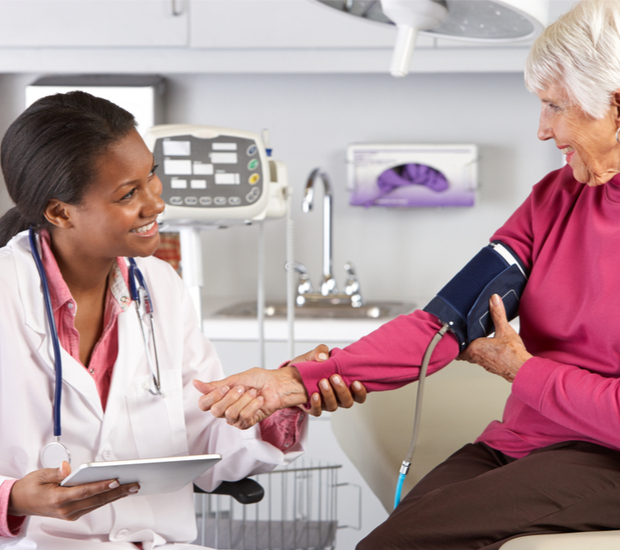Treatment for High Blood Pressure and CholesterolFrisco, TX
Urgent care centers often provide treatment for high blood pressure and cholesterol related problems. Getting fast access to such treatment can be beneficial for patients, given the serious medical problems either one of these things can lead to, like a heart attack or stroke.
Urgent care centers do not just provide treatments for high blood pressure and cholesterol related problems, they also educate patients about diet and lifestyle changes to improve their health.
Everything you should know about high blood pressure and cholesterol
1. High blood pressure
As blood circulates through a person's body via the blood vessels, it exerts pressure on the walls of these vessels. The pressure is actually required to safely circulate oxygenated blood throughout the body. The amount of pressure exerted on the walls of a person's arteries is called blood pressure.
It is one of the metrics that is often used to determine how healthy a person is. When a patient has high blood pressure measurement, this condition is known as hypertension or high blood pressure. Urgent care is essential when a person has abnormally high blood pressure since it can lead to potentially fatal events, like a heart attack, stroke, heart failure or kidney failure. High blood pressure can also lead to blindness.
Fortunately, figuring out one's blood pressure is a simple task, and there are many affordable devices that can be used to calculate it. The different categories used to classify blood pressure are:
People with high blood pressure rarely display any symptoms, but some do gain weight because of their condition. People with blood pressure readings that are greater than 139 mmHg should seek urgent care. There, they will receive treatments that ensure their blood pressure does not reach the dangerous range.
2. Cholesterol
Cholesterol is a waxy substance that comes from the fats inside blood. A certain amount of it is essential for good health, but too much can cause serious medical problems.
Cholesterol can combine with other materials in a person's blood and form plaque. This is a substance that can partially or completely block the circulation of blood through the body. When such buildups occur in critical areas, like the arteries that supply the heart with blood, it leads to a condition known as atherosclerosis. Blocked arteries can lead to various cardiovascular diseases, as well as a stroke.
Just as is the case with high blood pressure, most people with high levels of cholesterol do not exhibit any symptoms. That is why it is important to get regular blood tests so a physician can check your cholesterol levels and ensure they are within the recommended limits.
There are three different types of cholesterol. These are:
Check out what others are saying about our Treatment for High Blood Pressure and Cholesterol services on Yelp: Treatment for High Blood Pressure and Cholesterol Frisco
Causes of high blood pressure and cholesterol
High blood pressure and cholesterol have many other similarities besides the fact they can both have life-threatening consequences.
Their shared causes include:
Getting urgent care for high blood pressure and cholesterol
1. High blood pressure
The early stages of high blood pressure can be treated by making certain lifestyle changes like eating a more nutritious diet, exercising more often and avoiding salty foods. People with severely high blood pressure levels should seek urgent care immediately since it can lead to serious medical emergencies.
Doctors at an urgent care facility can provide medications that will help lower the patient's blood pressure:
2. High cholesterol
Since people with high cholesterol levels often do not exhibit any symptoms, doctors recommend getting regular blood tests to check cholesterol levels. The patient's age often determines how often they should be tested. Children and young adults only need to be tested every five years, while people over the age of 45 should be tested at least once every two years.
Just as is the case with high blood pressure, a person's cholesterol levels can be lowered by lifestyle changes. Eating healthy, exercising often and maintaining a healthy weight goes a long way when it comes to keeping cholesterol under control. People with very high cholesterol levels might be prescribed medication that will lower their cholesterol, like statins. Such medication combined with making the right lifestyle changes are an effective way to treat high cholesterol. Patients who have familial hypercholesterolemia might be given a treatment known as lipoprotein apheresis. It involves using a filtering machine to lower a patient's bad cholesterol (LDL).
Urgent care provides fast treatment
Given the life-altering medical events that high blood pressure and cholesterol can lead to, getting the treatment you need should be a priority. An urgent care center helps you avoid having to wait weeks before getting treatments that can preserve your health.



